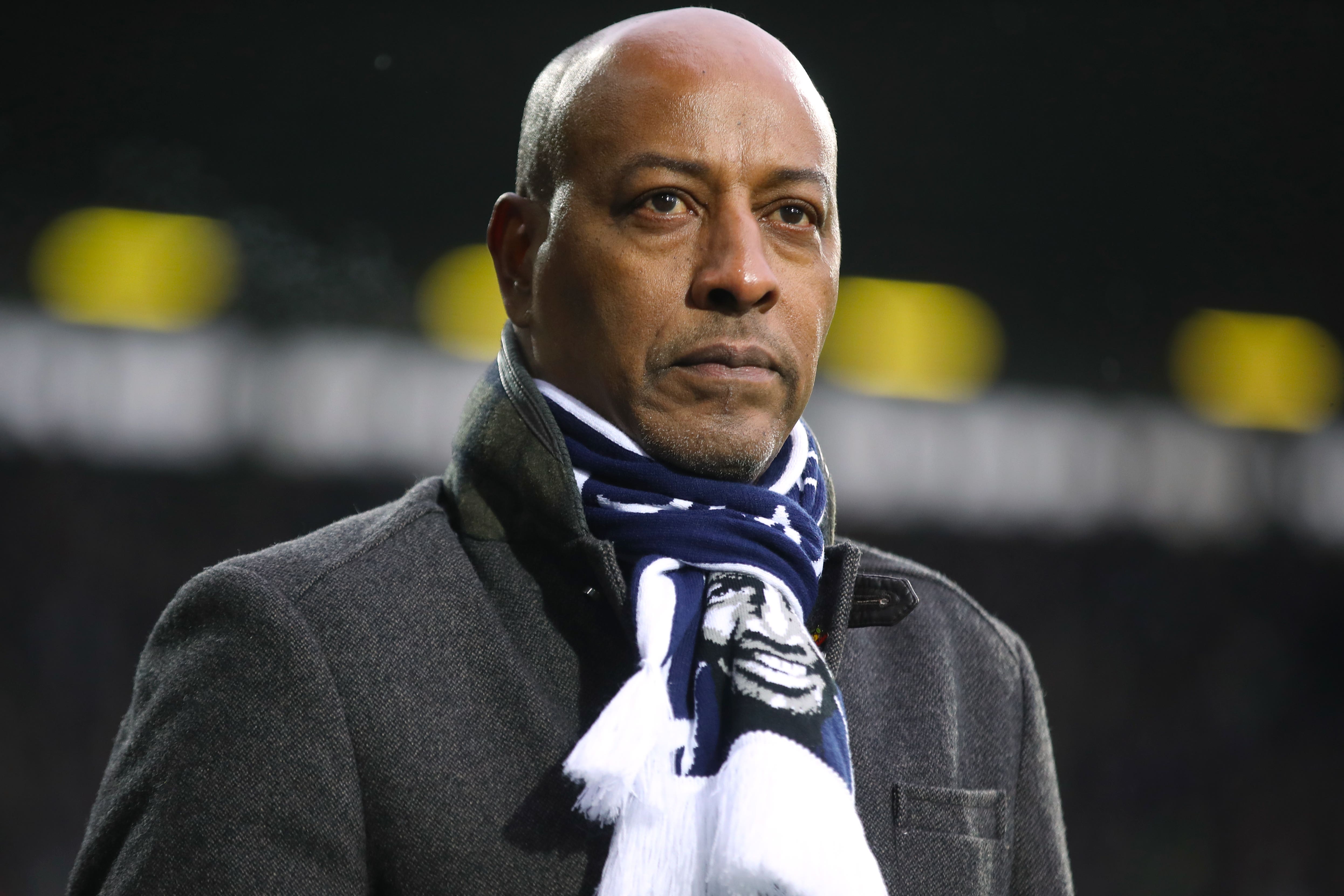Brendon Batson jumped at opportunity to play in black versus white match in 1979
The match was arranged as a testimonial for West Brom midfielder Len Cantello.

Your support helps us to tell the story
From reproductive rights to climate change to Big Tech, The Independent is on the ground when the story is developing. Whether it's investigating the financials of Elon Musk's pro-Trump PAC or producing our latest documentary, 'The A Word', which shines a light on the American women fighting for reproductive rights, we know how important it is to parse out the facts from the messaging.
At such a critical moment in US history, we need reporters on the ground. Your donation allows us to keep sending journalists to speak to both sides of the story.
The Independent is trusted by Americans across the entire political spectrum. And unlike many other quality news outlets, we choose not to lock Americans out of our reporting and analysis with paywalls. We believe quality journalism should be available to everyone, paid for by those who can afford it.
Your support makes all the difference.Brendon Batson has recalled how he “jumped at the thought” of playing in a black versus white match 45 years ago, and still looks back on it in a positive light.
The very idea of the fixture might seem bizarre and crass in 2024, but Batson says he and other black players had no hesitation in getting involved in the game on May 15, 1979 that served as a testimonial for his West Brom team-mate Len Cantello.
At the time racism towards black players from the terraces was rife, but Batson said the match helped strengthen the bond between black players in the English game at the time.
Batson and others who played in the match attended a 45th anniversary event organised by the Football Black List initiative at The Hawthorns on Thursday evening to share memories of it.
“To this day I’ve never quite been convinced who came up with the idea,” he told the PA news agency.
“It would have been Lenny’s testimonial committee that thought about it. When it was put to us we jumped at the thought of it, because while you knew there were a few black players around at the time, apart from playing against them you had not made that much contact with them.
“There were lads turning up on the night that we hadn’t known at all. We had the nucleus of the team, but I always remember Noel Blake, who was only 18 at the time, he just wanted to be part of the scene. So it was really a novelty idea to bring as many people in as possible for Lenny Cantello.
“We just thought it was a good idea. I don’t think we were looking at it from a social impact point of view. It was the 1970s and black players had started to come forward in ever-increasing numbers.
“It was a feeling of coming together for the benefit of our community. I’ll always remember Garth Crooks in the dressing room – testimonials are a bit of fun, but in the end Garth was saying ‘forget that, let’s beat these so and so’s’.
“There was a feeling that we were doing it for our own community and obviously in Birmingham, somewhere that’s very multicultural, it was something that we wanted to do and make them feel proud.”
The black team featured Batson and his Baggies team-mates Laurie Cunningham and Cyrille Regis, collectively nicknamed ‘The Three Degrees’ in reference to the 70s black female soul trio, along with other star names from the time like Wolves duo George Berry and Bob Hazell.
Batson’s men won 3-2, with goals from Cunningham, Crooks and substitute Stewart Phillips, against a white team which featured future England captain Bryan Robson.
Asked if he still reflected positively on it, Batson said: “Yes. I think for the time – things move on and attitudes change – there was never any suggestion (of it being an issue) and I don’t recall there being any adverse press.
“It was just accepted as a testimonial game, something different. We had a black team, it was a chance to see black players playing together, and that was it. There was no thought about the social impact uppermost in our minds, it was just going to be something different and a bit of fun.”
There was a feeling that we were doing it for our own community and obviously in Birmingham, somewhere that’s very multicultural, it was something that we wanted to do and make them feel proud
Batson was honoured at the Football Black List event, which recognised the contribution of the black community to football in the West Midlands.
The Football Black List was founded in 2008 by journalists Rodney Hinds and Leon Mann as an initiative to highlight and amplify black excellence in the national sport.
“Without the contribution of grassroots and community heroes there are no star names on the pitches at the biggest tournaments,” Mann said.
“So events celebrating these incredible people from our communities present an important opportunity to say thank you.
“The event will reflect on the journeys of our black pioneers and award Brendon Batson – someone who made a huge impact on and off the pitch.”